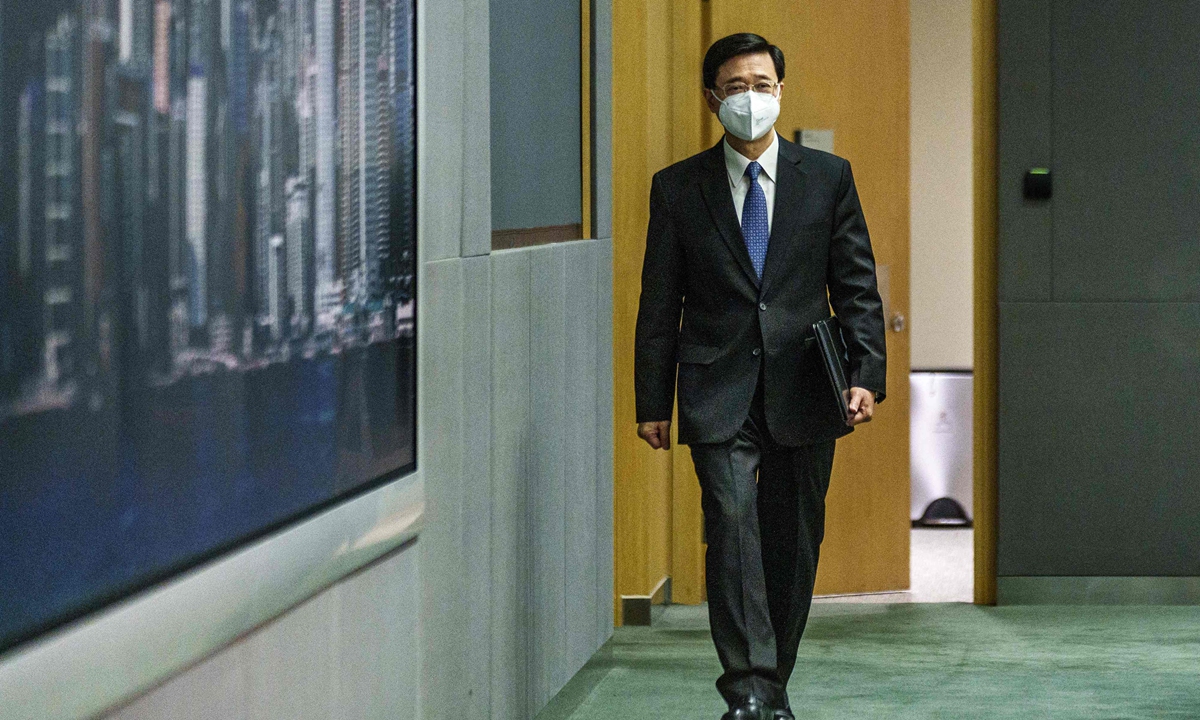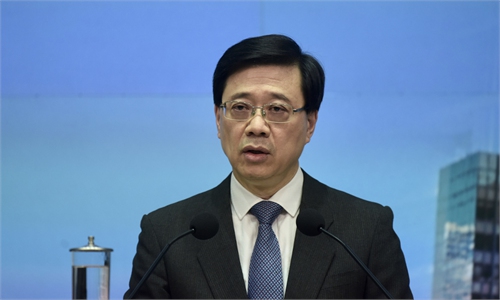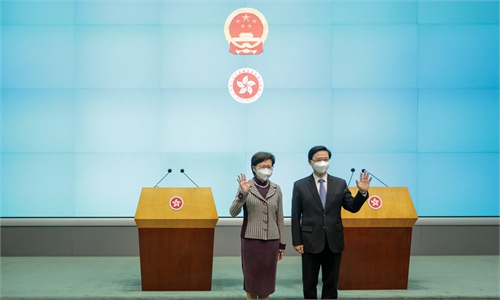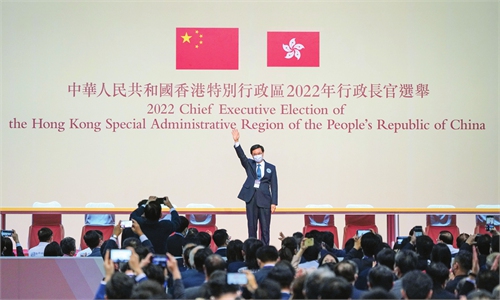HK chief executive-elect unveils govt restructuring plan, accepts Lam’s proposals in full

John Lee Ka-chiu Photo: CFP
Hong Kong Chief Executive-elect John Lee Ka-chiu unveiled a local government restructuring plan on Tuesday, including adding new positions such as deputy financial secretary, deputy chief secretary for administration, and deputy secretary of justice, and expanding 13 bureaus to 15, aiming to enhance the governance efficiency.
The governance restructuring package has been approved by the Executive Council on Tuesday and will take effect on July 1, according to a statement on the website of the Hong Kong Special Administrative Region (HKSAR) government. The package comprises various proposals initiated by incumbent Chief Executive Carrie Lam in her 2021 policy address and presented in detail to the Legislative Council in January. Those proposals have been accepted in full by CE-elect Lee.
Under the reorganization proposal, the number of policy bureaus will increase from 13 to 15, according to the restructuring plan. Adding three new positions of deputy secretary aims to enhance policy delivery, and they could be dispatched to designated projects such as public housing and housing land supplies to increase efficiency.
For example, the restructuring proposal included setting up a new Culture, Sports and Tourism Bureau to take over the culture, arts and sports portfolios from the Home Affairs Bureau, and also the film, creative industries and tourism portfolios from the Commerce and Economic Development Bureau.
Also, the new structure splits the Transport and Housing Bureau into two policy bureaus, namely the Transport and Logistics Bureau and the Housing Bureau while it retitles the Innovation and Technology Bureau as the Innovation, Technology and Industry Bureau, and reorganize the Home Affairs Bureau into the Home and Youth Affairs Bureau.
The package will entail an increase of 13 Politically Appointed Officials and 57 civil service posts.
Under the new structure, the number of Politically Appointed Officials largely increased, which will help increase the government's leadership over the administrations and civil servants, Lau Siu-kai, vice-president of the Chinese Association of Hong Kong and Macao Studies, who is also a senior government advisor, told the Global Times on Tuesday.
"It will also help quickly deliver the CE's policies to tackle the issues such as national security, housing woes, the development of Hong Kong youth, and the city's integration into the county's development plans," he said.
In Lee's policy platform, he mentioned that the Financial Secretary will be in charge of the public housing project and land supply coordination group. The housing project, land supply and logistics are all related to economy, which means the leadership of the Financial Secretary could create positive synergies.
Also, setting up a deputy secretary of justice is from the consideration that the Justice Secretary carries a heavy workload, and this new position could help reduce the burden and actively push forward the work related to the Constitution and the Basic Law, Lee told media on Tuesday.
Lee said in his policy platform that the future government will adopt a result-oriented approach within the government by setting clear targets and key performance indications (KPIs) for selected tasks within the first 100 days of the new administration.
After years of exploration, the central government and Hong Kong have reached a number of consensuses on issues needed to be addressed including housing challenges, the future of Hong Kong's youth, innovation and competitiveness, wealth gap, and education. To tackle the deep-seated issues related to housing - a major concern of local residents - Lee vowed to expedite land and housing development and shorten the waiting time for public rental housing.
On whether the new government will reset their central policy group, Lee said on Tuesday that he will set up a policy study group to examine cross-bureau polices and subjects.
Global Times



